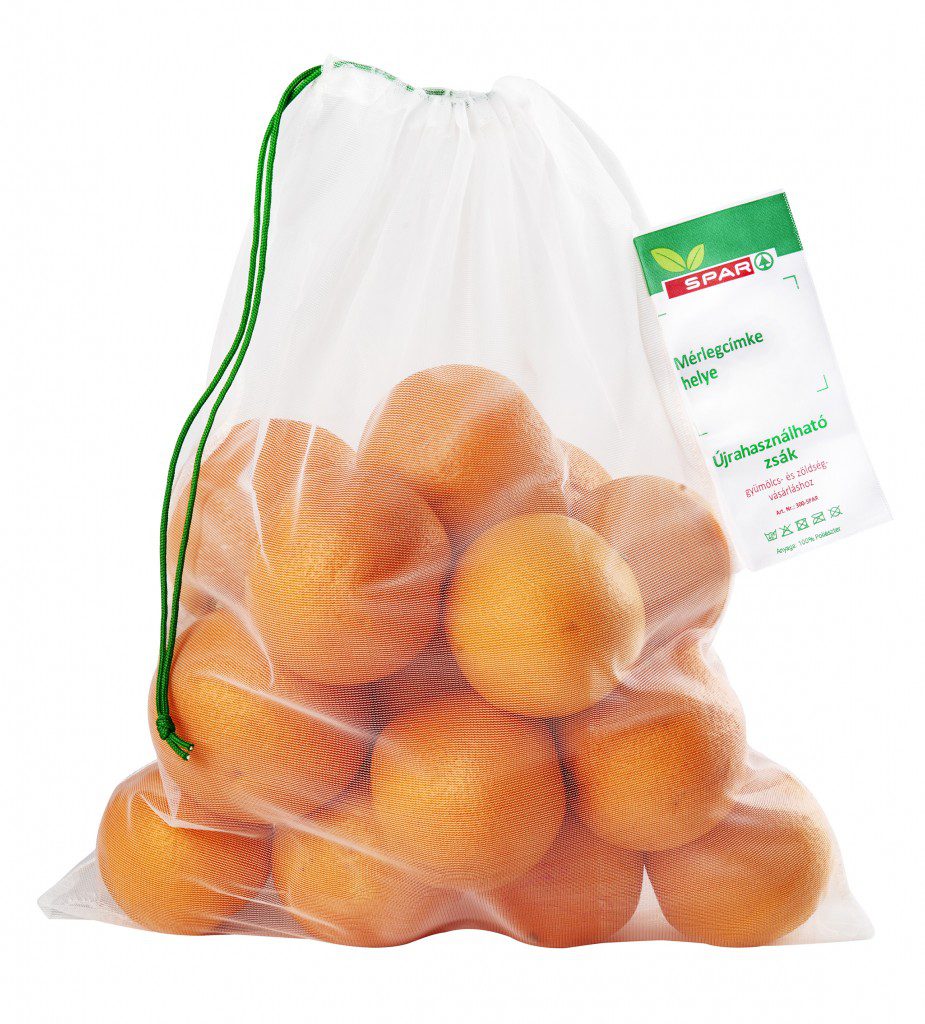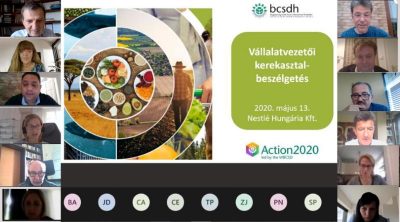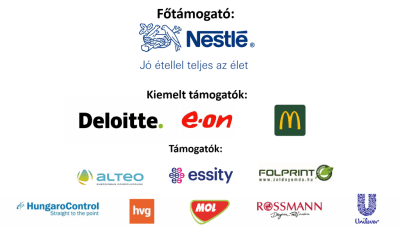From its establishment, the store chain is actively dedicated to environmental protection. Thanks to its sustainability strategy, plastic waste resulting from the operation of the company is decreasing which is further reduced with leaving the caps of certain own brand milks, the covers of sour cream and the polystyrene and plastic packaging of certain fruits and vegetables and changing the bottle of the own brand SPAR cooking oil. By the measure, more than 25 tonnes of less plastic waste is generated. The active environmentally conscious approach is also reflected in the paper usage of SPAR.
“In the interest of the sustainability of our environment worth living, besides material, technologies and workflows applied during its operation, SPAR encourages its customers to a more environmentally conscious behaviour. Our plastic-reduction strategy contributed with several steps over the years to that significantly less disposable plastic waste is produced. Eco-friendly packaging is becoming more important at all of the product types, this is what is happening now in case of certain own brand milk products and cooking oil and several fruits and vegetables. We pay similarly great attention to that we use recycled paper to our advertising flyers” – said Márk Maczelka, Head of Communication at SPAR.
A new important measure of the sus tainability strategy of SPAR is leaving the plastic caps from the packaging of the own brand 1 litre S-Budget 1,5% and 2,8% UHT milks. The company reduces by this environmentally friendly measure the used plastic volume with more than 6.7 tonnes in terms of annual turnover. The environmental burdens can be alleviated with the very significant reduction, while the products continue to guarantee the usual quality, durability and taste.
tainability strategy of SPAR is leaving the plastic caps from the packaging of the own brand 1 litre S-Budget 1,5% and 2,8% UHT milks. The company reduces by this environmentally friendly measure the used plastic volume with more than 6.7 tonnes in terms of annual turnover. The environmental burdens can be alleviated with the very significant reduction, while the products continue to guarantee the usual quality, durability and taste.
From 1st March 2020, the company switched to not only in case of milk products, but also in case of the distribution without plastic cover of the 450-gram SPAR (12%) and S-Budget (20%) sour cream products. With this measure, the plastic volume is decreased further with almost 8 tonnes annually. The consumers can preserve the quality of the unfolded dairy products with the reusable silicone closing covers that can be purchased in the stores.
The store chain applies economical, alternative solutions not only in case of plastics, but also in case of the use of paper in its operation and in terms of information material and product packaging. It is rare in the domestic retail practice today that a business group produces its informative advertising leaflets mainly from recycled paper. SPAR can be considered to be a pioneer in this respect: 75% of its weekly flyers is made of recycled paper. The store chain prints its flyers onto eco-friendly paper. The used paper products have the Ecolabel certificate of the European Union (EU). The label is awarded on the basis of strict rules and criteria defined by product groups. According to the relevant regulation of the European Parliament and of the Council made on 25th November 2009, exclusively those products deserve the Ecolabel certificate which products concerning their entire life cycle burden only minimally the environment.
SPAR has already earlier reduced the quantity of plastic waste with the use of paper egg trays. The company prefers paper over plastic in connection with packaging for a long time. One of the alternative, eco-friendly packaging solutions is the application of recyclable pulp materials, for example in case of chicken egg trays, which materials are reusable, carbon-neutral and completely biodegradable. Based on sales data, SPAR calculates with significant amount of plastic load reduction by the use of recycled paper.
SPAR changes the previous plastic foam tray of the 4-piece tomato to paper boat tray. The store chain replaces even 235 kilograms of polystyrene in one year with this, and it offers already in the season of 2020 this product with the paper tray. The company also changes the p ackaging of the 3-piece sweet pepper and hot pepper. Knowing the last year’s numbers, the switch to the 100% degradable packaging means for the former product 660, while for the latter product 1015 kilograms of plastic saving.
ackaging of the 3-piece sweet pepper and hot pepper. Knowing the last year’s numbers, the switch to the 100% degradable packaging means for the former product 660, while for the latter product 1015 kilograms of plastic saving.
The company reduces more and more the used plastic in case of other vegetables. The half a kilogram bio lemon is taken onto the shelves in environmentally friendly net packaging made of thread instead of net packaging made of plastic because of which almost 686 kilograms of less plastic is generated this year according to the plans.
Plastic material is also removed from the packaging of the 1-kilogram bio orange, thanks to which more than 152 kilograms of plastic saving develops in one year.
The company will save further significant amount that is 7.2 tonnes of plastic annually with that the 1-litre own brand SPAR cooking oil is filled into weight-reduced bottle that ensures the usual holding. The supplier reduced with this development together the size and weight of caps as well by using even less plastic during production that results based on the annual demand another significant plastic-saving.
During its activities, SPAR applies more environmentally conscious solutions and promotes them among its customers. The company offers reusable storage bags for fruits and vegetables in the stores from last year, and it contributes with further important steps to the reduction of the environmental burden such as replacing the plastic freezer bags to paper insulation bags or reducing the weight of PET bottles of certain own brand mineral waters.






